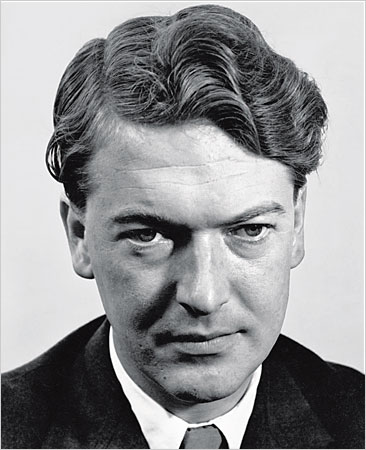One Art
BY PROF. VAROL AKMAN
In the first installment of this column - on November 9, 2010, to be precise - I promised to allocate it to "English-language poetry (American or British)." I now realize that I have been fairly disappointing in regard to the British part of my undertaking. (At my age, it takes a while for awareness to sink in.) So today I try to remedy the inadvertent neglect with poems from five major British poets whom I admire.
 Time Passing, Beloved
Time Passing, Beloved
Donald Davie (1922-1995)
Time passing, and the memories of love
Coming back to me, carissima, no more mockingly
Than ever before; time passing, unslackening,
Unhastening, steadily; and no more
Bitterly, beloved, the memories of love
Coming into the shore.
How will it end? Time passing and our passages of love
As ever, beloved, blind
As ever before; time binding, unbinding
About us; and yet to remember
Never less chastening, nor the flame of love
Less like an ember.
…
 If, My Darling
If, My Darling
Philip Larkin (1922-1985)
If my darling were once to decide
Not to stop at my eyes,
But to jump, like Alice, with floating skirt into my head,
She would find no tables and chairs,
No mahogany claw-footed sideboards,
No undisturbed embers;
The tantalus would not be filled, nor the fender-seat cosy,
Nor the shelves stuffed with small-printed books for the Sabbath,
Nor the butler bibulous, the housemaids lazy:
She would find herself looped with the creep of varying light,
Monkey-brown, fish-grey, a string of infected circles
Loitering like bullies, about to coagulate;
…
 In the Attic
In the Attic
Andrew Motion (b. 1952)
Even though we know now
your clothes will never
be needed, we keep them,
upstairs in a locked trunk.
Sometimes I kneel there,
holding them, trying to relive
time you wore them, to remember
the actual shape of arm and wrist.
My hands push down between
hollow, invisible sleeves,
hesitate, then lift
patterns of memory:
…
I am a man now.
Pass your hand over my brow:
You can feel the place where the brains grow.
I am like a tree:
From my top boughs I can see
The footprints that led up to me.
There is blood in my veins
That has run clear of the stain
Contracted in so many loins.
Why, then, are my hands red
With the blood of so many dead?
Is this where I was misled?
Why are my hands this way
That they will not do as I say?
Does no God hear when I pray?
…
 Untitled
Untitled
Kingsley Amis (1922-1995)
Things tell less and less:
The news impersonal
And from afar; no book
Worth wrenching off the shelf.
Liquor brings dizziness
And food discomfort; all
Music sounds thin and tired,
And what picture could earn a look?
The self drowses in the self
Beyond hope of a visitor.
Desire and those desired
Fade, and no matter:
Memories in decay
Annihilate the day.
There once was an answer:
Up at the stroke of seven,
A turn round the garden
(Breathing deep and slow),
Then work, never mind
what,
How small, provided that
…
* This poem was discovered in 2004 among Amis's posthumous papers. Its existence was unknown to relatives, colleagues, or Amis's literary agent.